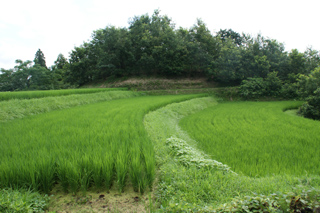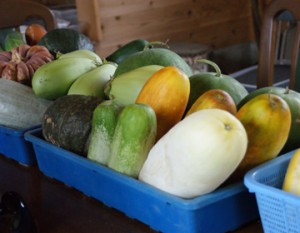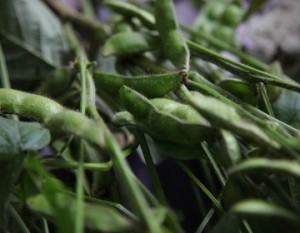Taking advantage of micro-organisms in soil
Enzyme farming is a method which utilizes the catalytic action of naturally existing enzymes. It is the latest in organic farming, in which the activity of billions of micro-organisms in the soil are affected by the enzymes they produce themselves, enhancing their function in the ecosystem and vitalizing various enzymes. In other words, crops are given enzymes, liquid manure and water infused with micro-organisms, to reduce the need for agrochemicals and chemical fertilizers. This method is not widely known in Japan, but it is already an established method commonly implemented in Europe and America. Crops grown using the enzyme method are said to grow stress free and remain healthy.

Onion that is the apple of his eye?
Nakata visited Fumimasa Nishi’s farm in Ogata, Oita in order to learn his technique. Nishi uses compost rich with nutrients for the microbes to feed on. By allowing the soil and compost to ferment together, he is able to grow safe and delicious vegetables. He grows tomatoes and eggplants in greenhouses, eggplants and onions outdoors, and also grows rice and breeds cattle.
Nishi’s vegetables are very well known by the locals for their delicious taste. Nakata tasted a tomato and raw eggplant. Both were very sweet and absolutely delicious. While there are factors such as the soil and environment that may or may not be suitable for enzyme farming, it would be great if more farmers practiced this type of farming.
Nishi handed Nakata a slice of onion and told him that it would not make his eyes water, even if it touched his eyes directly. Nakata was skeptical, but found that it really didn’t sting.
Nishi told us he valued the importance of ”giving water, nutrients and oxygen to the crops when they needed it and in the amount that was needed, to keep the microbes active. This would prevent the growth of harmful pathogens, and the power of the soil would naturally nurture sturdy crops.” This method grows safe, nutrient-rich, and delicious produce.












